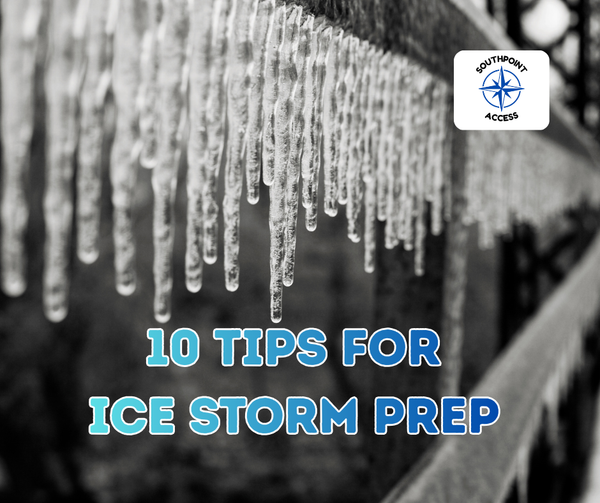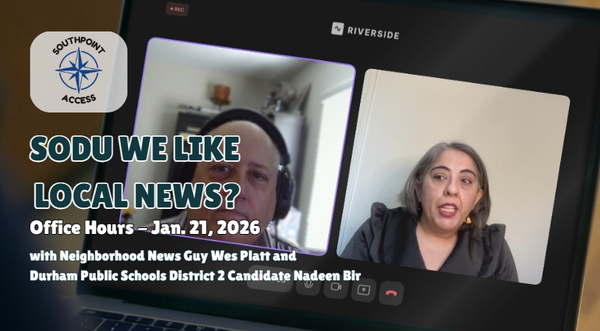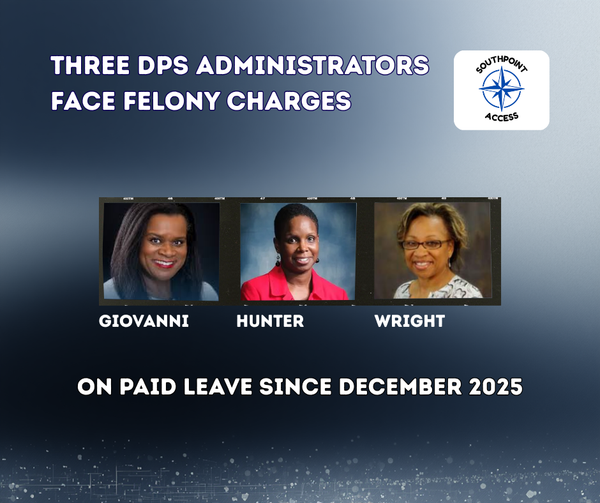[Raising Durham] Main Character Energy: Life Beyond Your “Expiration Date”
The world is hesitant to cast women like me as the main character. Instead, we’re the wise friend, the frazzled mom, or the “frumpy” comic relief—bit players who are often sidelined or overshadowed by younger, more “marketable” women.
![[Raising Durham] Main Character Energy: Life Beyond Your “Expiration Date”](/content/images/size/w1200/2024/12/harperandheather.JPG)
If you ever want to feel simultaneously powerful and invisible, try turning 48 as a single mom while dipping your toes into the dating pool. One moment you’re marveling at your toned arms and shoulders in the mirror, the next you’re wondering if the guys who swiped left on you even made it past your birth year in your dating profile. (It's a long scroll, to be fair.) For women of a certain age, it often feels like society hands us a cloak of invisibility the moment we blow out our 40+ candles.
The strange part? I feel better now than I ever have. I’m in the best shape of my life, both mentally and physically. I’ve lived enough to know what I want and what I’ll never tolerate again. And yet, it seems the world is hesitant to cast women like me as the main character. Instead, we’re the wise friend, the frazzled mom, or the “frumpy” comic relief—bit players who are often sidelined or overshadowed by younger, more “marketable” women.
This erasure doesn't just occur in the media; it also seeps into the dating world. On dating apps, where options are filtered by age like some kind of romantic sorting hat, women in their late 40s often don’t make the cut. And that’s a shame, because women my age are vibrant, confident, and secure in a way that’s pretty magnetic—if you take the time to notice.
But here’s the kicker: I’m not alone in feeling this way. My friend recently pointed out that women who love women often seem to celebrate age differently. Actresses like Cate Blanchett, Gillian Anderson, and Sarah Paulson have huge followings among women—a testament to the idea that attractiveness and value don’t expire when you hit 40. So perhaps it’s not just about age; maybe it’s about who’s holding the lens.
The invisibility I’m talking about isn’t confined to age, either. Another friend reminded me that many people feel overlooked due to their weight, income, education level, or other factors. This idea of “not being seen” is universal, even if the specifics differ. The frustration of being defined by a single trait—whether it’s your age, your body size, or your job title—can feel stifling. It’s a reminder that the boxes society puts us in are too small for the entirety of who we are.
So, how do we fight back against this cultural oversight? For starters, we tell our stories—loudly and unapologetically. We write characters in books and movies who are sexy, messy, and magnetic at 48. We support brands and creators who reflect a broader spectrum of experiences. And, most importantly, we see ourselves—because the first step to being visible to others is to stop erasing yourself.
I’ll admit it’s not easy. Some days I catch myself languishing in my favorite sweats and fluffy socks like an amorphous blob being enveloped by my couch. But other days, I lean into the things that make me feel alive: laughing until my stomach hurts, pursuing dreams I’ve held since childhood, and, yes, catching a glimpse of myself in the mirror and feeling a deep appreciation for my body for all it’s carried me through and for still looking amazing—even in middle age!
Heather Hindin is a Durham-based educator and single parent to 11-year-old Harper. With a career dedicated to equity in education, Heather brings both professional insight and personal experience to Southpoint Access. As the mother of a pediatric cancer survivor, she understands the importance of community and candor in overcoming parenting challenges. Together, Harper and Heather advocate for pediatric cancer awareness and research. They've founded Harper's Home, a non-profit providing affordable housing to families with children receiving treatment at Duke. Heather's column offers a blend of practical advice, compassion, and community engagement, drawn from her journey as an educator, advocate, and most importantly, a mom.





